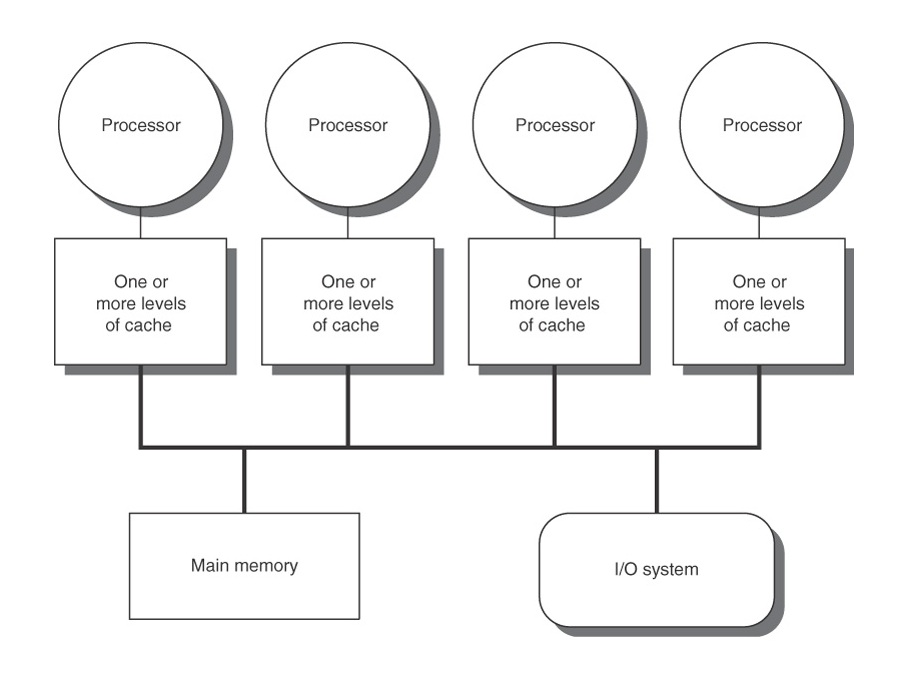CSC 456 Spring 2012/ch7 AA
Cache Coherence
Problem

In a system with a single processor (single core), maintaining cache coherency is simple and easy, but in a multiprocessor system, it is not as simple. Data can be present in any processor's cache, and protocol needs to ensure that the data is same in every cache. If it cannot ensure that all the caches are the same, then it needs to flag a cache line to indicate that it is not updated.
In the figure shown here, there is a 4 processor shared memory system where each processor has its own cache. Suppose processor P1 reads memory location M1 and stores it in its local cache. Then, processor P2 also reads from M1 and stores its own local cache. Now, if P1 changes value of M1, there will be two copies of same data residing in different caches, but the one in P1's cache will be different. The problem arises when P2 operates on M1, and uses the stale value of M1 that was stored in its cache. There exist solutions to this problem, and are described in the next section.
Solutions
Cache coherence solutions are mainly classified as - software-based and hardware-based solutions.
Software-based solutions include:
- Compiler-based or with run-time system support
- With or without hardware assist
Hardware-based solutions include
- Shared caches or Snoopy schemes or Directory-based schemes
- Write-through vs write-back protocols
- Update vs invalidation protocols
- Dirty-sharing vs. no-dirty-sharing protocols
The main concern in case of software-based solutions is - perfect information is needed at all times when memory aliasing and explicit parallelism are required.So, the focus is more on improving hardware-based solutions and they are more common. Studies have shown that different snoop-based cache coherency schemes have a strong sensitivity to the write-policy more than the specific coherency protocol. Write-back schemes are more efficient than despite the increased hardware complexity involved in cache-coherency support.
Hardware-based cache-coherence protocols, though more competitive in terms of performance with respect to basic architectures with no hardware support, incur significant power cost as coherence traffic grows. Thus, as power constraints become tighter and the degree of multiprocessing increases, viability of hardware-based solutions becomes doubtful.
One may think that cache write policy can provide cache coherence but it is not true. Cache write policy only controls how a change in value of cache is propagated to lower level cache or main memory. It is not responsible for propagating changes to other caches.